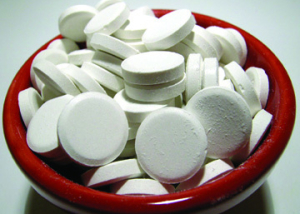
High doses of vitamin D3 may help to counter the body’s hyperactive immune response associated with multiple sclerosis (MS), according to a study published online in Neurology. The safety of taking a high dose of vitamin D3 in the case of MS has also been confirmed by this research.
Forty people with relapse-remitting MS were given either 10,400 IU or 800 IU of vitamin D3 supplements per day for six months in this study.
Currently the US recommended daily allowance of vitamin D3 is 600 IU. Researchers tested participant’s blood at the beginning of the study, and again at three and six months, measuring for the amount of vitamin D in the blood, and the response in the immune system’s T cells.
Iatrogenic effects from the vitamin supplements were minor, and were not different between the people taking the high dose and the people taking the low dose. One person in each group had a relapse of disease activity.
The people taking the high dose had a reduction in the percentage of T cells related to MS activity. When the increase in vitamin D in the blood was greater than 18 nanograms per millilitre (ng/ml), every 5 ng/ml increase in vitamin D led to a 1% decrease in the proportion of interleukin 17 T cells in the blood. The people taking the low dose did not have any changes in their T cells.
While researchers are still determining the optimal level of vitamin D in the blood for people with MS, the people in the study taking the high dose of vitamin D reached a level that has been proposed as a target for people with MS. Vitamin D levels above 30 ng/ml are considered sufficient for the general population, but researchers noted that for people with MS, it may be that levels above 50 ng/ml are necessary to reduce disease activity. The group taking the low dose did not reach this target.
“These results are exciting, as vitamin D has the potential to be an inexpensive, safe and convenient treatment for people with MS,” says study author Peter A Calabresi, of Johns Hopkins University School of Medicine in Baltimore, and a Fellow of the American Academy of Neurology. “More research is needed to confirm these findings with larger groups of people and to help us understand the mechanisms for these effects, but the results are promising.”
The study was supported by the Kenneth and Claudia Silverman Family Foundation, the Montel Williams Foundation and the National Multiple Sclerosis Society.













